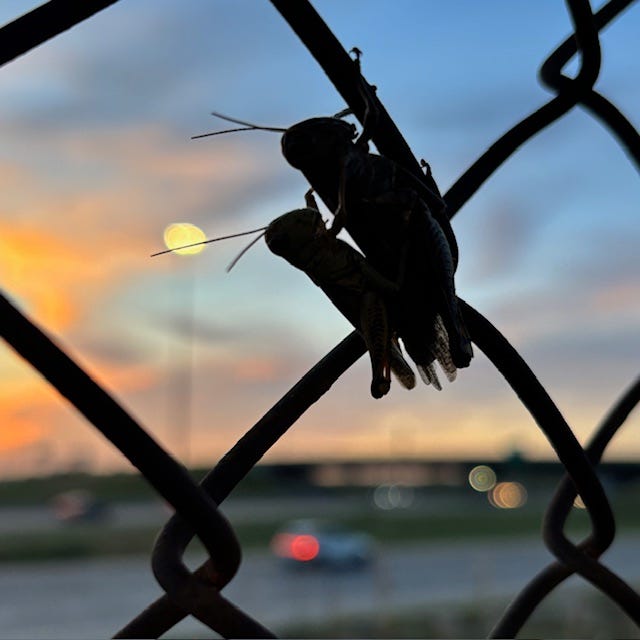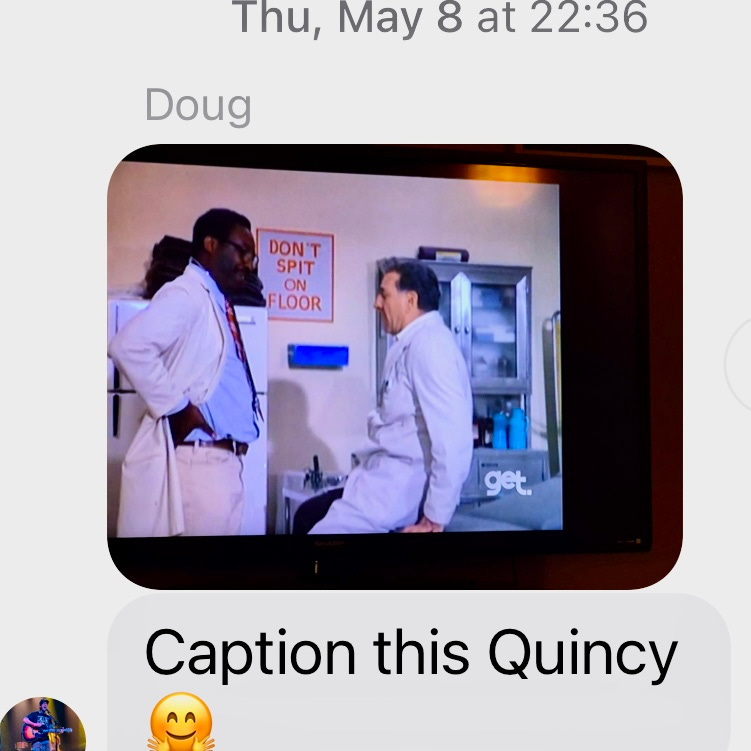The first thing I learned in the online forensic entomology class I’m enrolled in was that I didn’t know what the word forensic meant. Which further meant that for nearly the past 40 years, I’d been using the word incorrectly in conversations and writings. And, I used the word a lot. Usually in the context of “When I was a kid, I wanted to go into forensics because I loved the show Quincy.” Ugh, the embarrassment muscle that runs from my gut to my neck rippled with the lactic acid of overwork. Did everyone else also misunderstand this word, or was it simply that no one wanted to correct me?
This paragraph from our textbook, “The Science of Forensic Entomology” (David B. Rivers and Gregory A. Dahlem) was what clued me in to my mistake:
“The term “forensic” is defined as pertaining to or connected with the law, while “science” is the study of the physical and natural world through systematically arranged facts and principles that are rigorously tested by experimentation. When used together the two terms yield a discipline that addresses issues pertaining to or connected to the law through the application of tested facts and principles and by use of rigorous experimentation.”
Pertaining to the law!?! I had NO clue.
It is embarrassing to have your ignorance revealed to you. And it rarely happens gradually. It’s more radical, like an accelerated holometabolism (complete metamorphosis), where we go from ignorant egg, to curious larva, to protected pupa, to knolwedgable imago (adult) within the blink of an eye. Reading the paragraph above sent me from egg to imago in a matter of seconds.
The authors continue on about the term, softening the blow to my ego a bit:
“Use of the term “forensics” as a substitute for “forensic” has confused the terminology to some degree. The former term originally meant the study or art of debate or argumentation. Hence, a school debate team practices forensics or debating. Though “debate” between attorneys has a defined role in the courtroom, it does mean pertaining to the law. However, within the court of public or popular opinion, “forensics” has come to imply forensic science. In fact, a word search on the internet or in some dictionaries yields results which indicate that “forensics” can also be defined as referring to the law. In today’s society, practice tends to set policy or norms and, as such, “forensics” is quickly becoming an accepted term for forensic science. No doubt this expanding definition has its origins with the popular television crime shows.”
Quincy, M.E. was a popular TV crime show that aired from 1976 to 1983. Jack Klugman was a hot-headed forensic pathologist who could solve crimes in an hour with a self-assurance so valid it never seemed arrogant. While I remember Quincy being one of my favorite shows as a kid, I was shocked to realize it went off air in 1983, when I was 8 years old. Was I watching reruns of the show, or was I an avid Quincy fan before the age of 8? I’ve credited being raised Catholic with my almost obsessive curiosity of the body, but maybe Klugman deserves a little credit as well.
My bestie, Doug, still watches Quincy quite often, usually in the evening as he winds down. He will text me random snippets of the show, and earlier this year, he sent this TV screengrab to our group thread along with a caption challenge:
The hilarious erotic potential of this photo was minimized and trivialized within the small dimensions of my phone screen. But it truly gets its due on the vastness of my computer screen. Comment with a clever caption to win a free subscription to I Won’t Keep You! (I don’t have paid subscriptions turned on, but you should still play along!)
The last textbooks I read were in 2020-2022 and focused on nutrition science. I forgot how much I love a good textbook, and these entomologists are delivering. It’s in chapter 1 where, just before a discussion on the Bible being one of the first source books for forensic entomology, the authors basically call God a terrorist for sending swarms of insects to Egypt. While I am not a believer, and found this hilarious, it was not written in a way that would have been disrespectful to believers, so much as a credible and thought-provoking example of the law and entomology.
“These descriptions (of “God’s use of insects in plagues”) can be viewed as some of the first cases in forensic entomology since they represent acts that fall under today’s definition of criminal intent and terrorist activity!”
Forensic entomology includes three subfields: medicocriminal forensic entomology, urban forensic entomology, and stored product forensic entomology. The class I’m enrolled in focuses on the medicocriminal subfield, but from the little I’ve read, I believe stored product forensic entomology would be my favorite. I could’ve been the Quincy M.E. of cereals and grains!
One week in, and I’m already looking at insects differently. Minuscule maggots attached to the inside of our compost bucket sprang to life not spontaneously (abiogenesis) from my laziness, but because flies had oviposited their eggs on the decomposing organic matter. But people used to believe that meat created maggots, as God created Man - abruptly and maybe due to pneuma. And I wondered while looking at the pair of grasshoppers that watched the sunset together while clinging to the chained link of a fence that separated me and Megan from the interstate, if they also leave abrasions on the dead that resemble sulfuric acid poisoning, the way cockroaches can. A “Ctrl” + “F” search of my textbook did not reveal the answer, but I did learn that female grasshoppers will sometimes eat the spermatophore from the male after mating. Apparently, it’s nutritious. And yet, the praying (in reality, it seems like “preying” would also work) mantis is the one who gets all the attention. Eating a sack of sperm reminded me of how I was able to convince the girls on our floor of the dorm in college that I saved semen in baby food jars in the freezer to use on my skin because of the high Vitamin E content.
Until next Tuesday, try to see insects with a compound eye.
~ Trilety



I don’t think I knew this exactly either. I know a forensic psychiatrist and I know her job is to advise the courts on criminal defendant’s sanity but I still thought it was more analysis to solve crime because of tv. My caption is:Ever see one like this?
What i remember most about Quincy is that they always ended up in a restaurant!